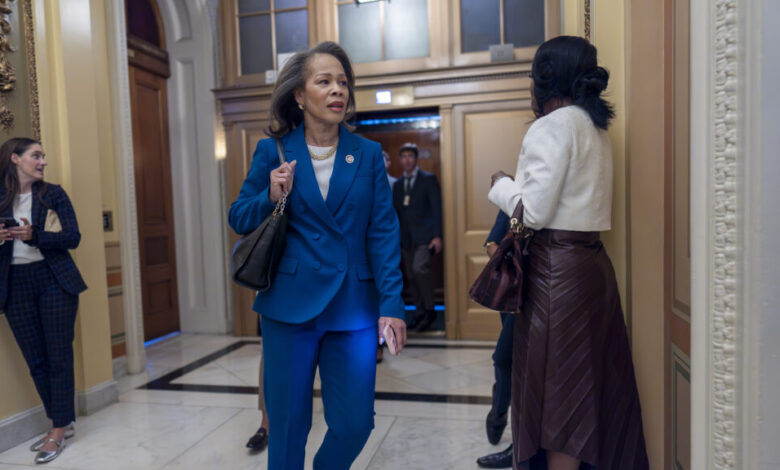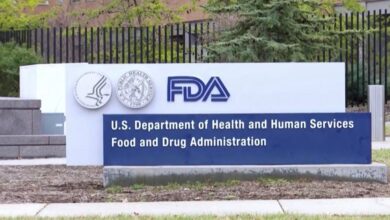Blunt Rochester queries RFK Jr. on CDC acting director qualifications

Sen. Lisa Blunt Rochester has taken a strong stance against Health Secretary Robert F. Kennedy Jr. in a recent letter demanding clarification on the leadership of the Centers for Disease Control and Prevention (CDC). Blunt Rochester’s three-page letter questions the qualifications and legal eligibility of Matthew Buzzelli, who Kennedy claimed was the acting director of the CDC.
Blunt Rochester, a Democrat representing Delaware, raised concerns that Buzzelli may not meet the requirements outlined in the federal Vacancies Act to serve as the acting director of the CDC. She emphasized the critical role of the CDC director in making decisions that impact the health of millions of Americans and highlighted the risks posed by the absence of a qualified leader at the agency.
During a recent Senate hearing, Kennedy identified Buzzelli as the acting CDC director, describing him as a “public health expert.” However, Buzzelli’s background as a trial lawyer raised doubts about his suitability for the role. Blunt Rochester pointed out that Buzzelli’s official CDC biography does not mention any public health experience and only identifies him as the chief of staff, not the acting director.
Legal expert Anne Joseph O’Connell supported Blunt Rochester’s concerns, stating that the Vacancies Act stipulates specific criteria for appointing an acting director. According to O’Connell, Debra Houry, the deputy director for program and science at the CDC, should have been considered for the role based on her position as the first assistant. Blunt Rochester requested an explanation from Kennedy regarding the selection of Buzzelli over Houry for the acting director position.
Blunt Rochester also questioned the transparency of the Department of Health and Human Services (HHS) under Kennedy’s leadership, criticizing the lack of public disclosure regarding the CDC’s leadership. She called on Kennedy to provide evidence of Buzzelli’s legal eligibility for the acting director position, details of any formal actions taken by him in that capacity, and a commitment to timely communication on high-level vacancies within the agency.
The letter from Blunt Rochester reflects broader concerns among Senate Democrats about the accountability and transparency of the HHS leadership. Despite assurances from Kennedy to address their inquiries, Democrats have reportedly faced challenges in obtaining responses from the department. The ongoing scrutiny of the CDC’s leadership underscores the importance of ensuring qualified and competent individuals are appointed to key roles in public health agencies. Kennedy’s appearance before congressional committees raised eyebrows as he made claims that contradicted widespread reports, including those coming from within his own agency, regarding the impact of staffing and funding cuts. When questioned about the reorganization of federal health agencies, Kennedy avoided providing specific details, stating that he had been advised by attorneys not to discuss the matter. He also mentioned that he would look into the issues and return with answers at a later time.
During the hearing, Kennedy expressed frustration with the size and redundancies within the Department of Health and Human Services (HHS), stating, “There’s no way to govern this agency.” He emphasized the urgent need for reorganization to address the inefficiencies and complexities within the department. Kennedy acknowledged that mistakes may occur during the restructuring process but emphasized the importance of taking action to improve the functionality of the agency.
The testimony given by Kennedy highlighted the challenges and obstacles faced by HHS in streamlining its operations and maximizing its effectiveness. While some senators expressed skepticism about Kennedy’s responses and the lack of transparency regarding the reorganization efforts, others recognized the need for change within the department.
The hearing shed light on the internal struggles and conflicting narratives within HHS, raising concerns about the management and decision-making processes within the agency. As Kennedy navigates the complexities of restructuring and reorganizing the department, it remains to be seen how these efforts will ultimately impact the delivery of healthcare services and programs to the American public.
In conclusion, Kennedy’s appearance before congressional committees underscored the ongoing challenges and controversies surrounding staffing and funding cuts within HHS. The need for transparency, accountability, and effective governance within the agency was brought to the forefront, sparking discussions about the best practices for restructuring and improving the efficiency of federal health agencies.




